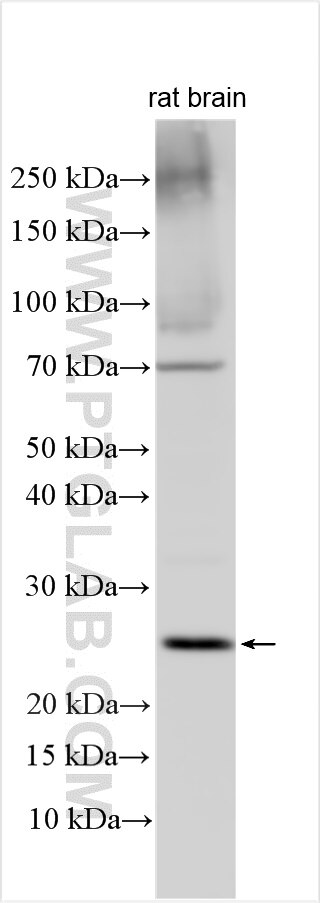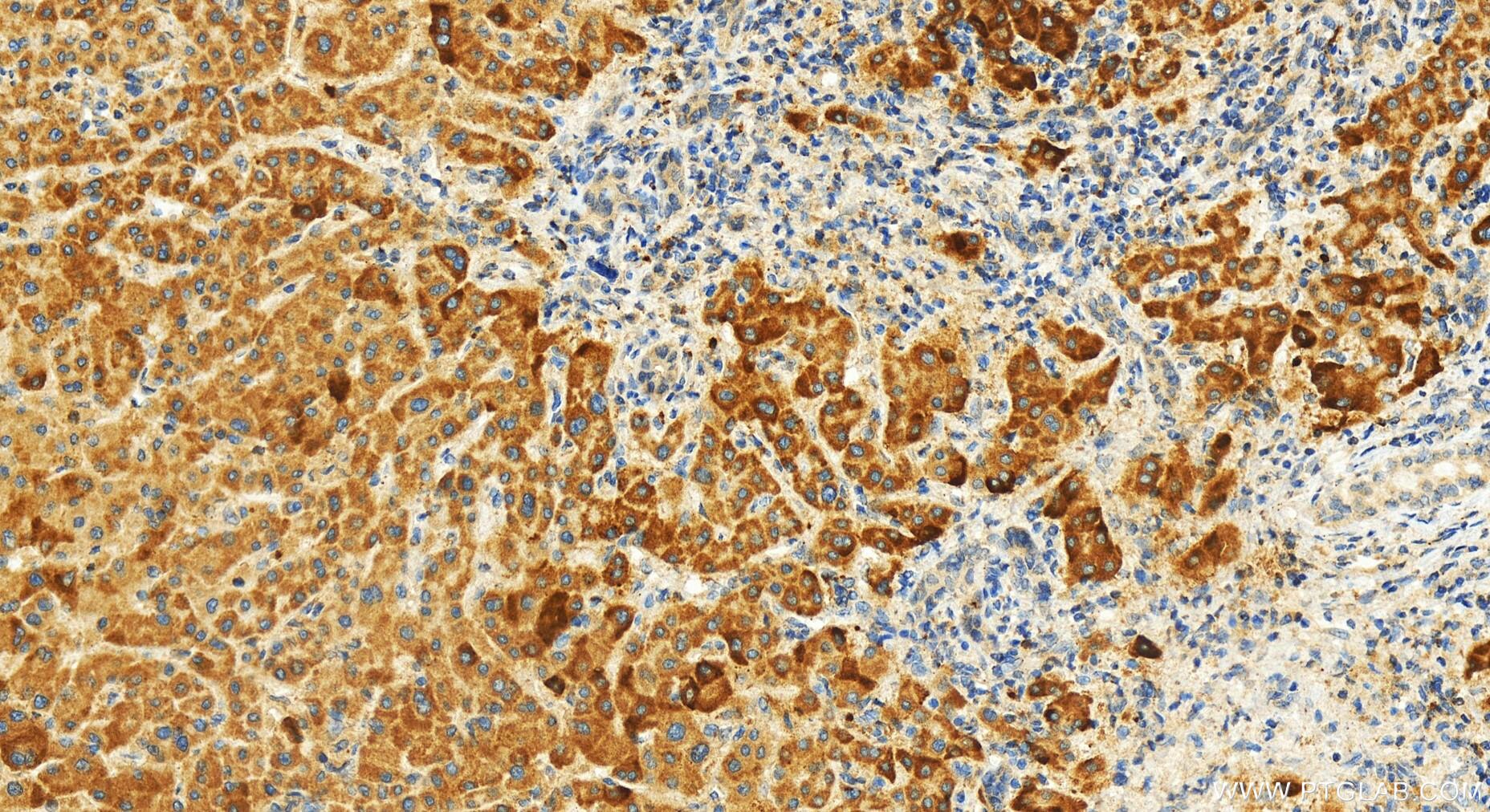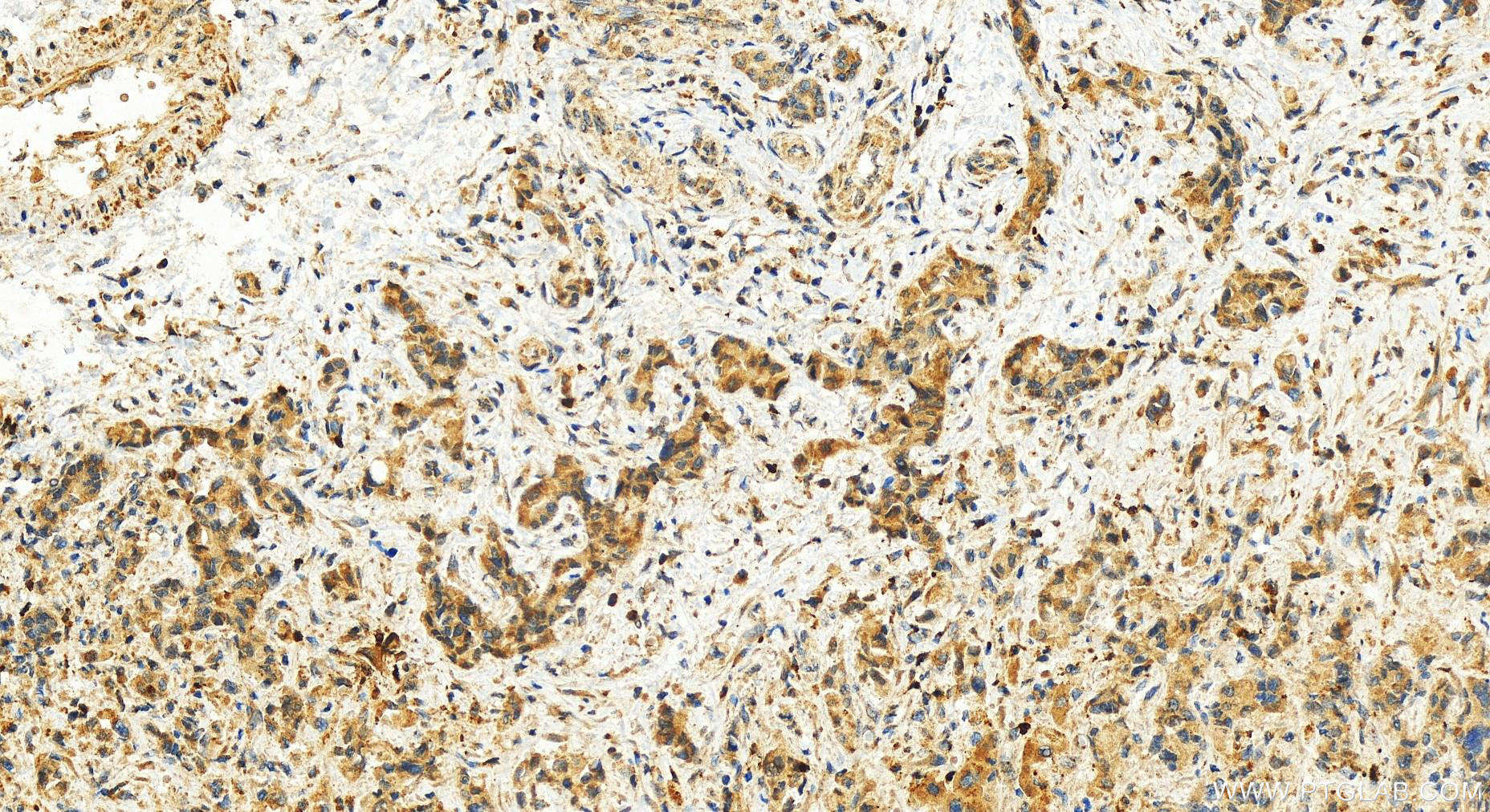Tested Applications
| Positive WB detected in | rat brain tissue |
| Positive IHC detected in | human intrahepatic cholangiocarcinoma tissue Note: suggested antigen retrieval with TE buffer pH 9.0; (*) Alternatively, antigen retrieval may be performed with citrate buffer pH 6.0 |
Recommended dilution
| Application | Dilution |
|---|---|
| Western Blot (WB) | WB : 1:500-1:1000 |
| Immunohistochemistry (IHC) | IHC : 1:50-1:500 |
| It is recommended that this reagent should be titrated in each testing system to obtain optimal results. | |
| Sample-dependent, Check data in validation data gallery. | |
Product Information
18046-1-AP targets PGLYRP1 in WB, IHC, ELISA applications and shows reactivity with human, mouse, rat samples.
| Tested Reactivity | human, mouse, rat |
| Host / Isotype | Rabbit / IgG |
| Class | Polyclonal |
| Type | Antibody |
| Immunogen |
CatNo: Ag12690 Product name: Recombinant human PGLYRP1 protein Source: e coli.-derived, PET28a Tag: 6*His Domain: 1-196 aa of BC101845 Sequence: MSRRSMLLAWALPSLLRLGAAQETEDPACCSPIVPRNEWKALASECAQHLSLPLRYVVVSHTAGSSCNTPASCQQQARNVQHYHMKTLGWCDVGYNFLIGEDGLVYEGRGWNFTGAHSGHLWNPMSIGISFMGNYMDRVPTPQAIRAAQGLLACGVAQGALRSNYVLKGHRDVQRTLSPGNQLYHLIQNWPHYRSP Predict reactive species |
| Full Name | peptidoglycan recognition protein 1 |
| Calculated Molecular Weight | 196 aa, 22 kDa |
| Observed Molecular Weight | 25 kDa |
| GenBank Accession Number | BC101845 |
| Gene Symbol | PGLYRP1 |
| Gene ID (NCBI) | 8993 |
| RRID | AB_3085550 |
| Conjugate | Unconjugated |
| Form | Liquid |
| Purification Method | Antigen affinity purification |
| UNIPROT ID | O75594 |
| Storage Buffer | PBS with 0.02% sodium azide and 50% glycerol, pH 7.3. |
| Storage Conditions | Store at -20°C. Stable for one year after shipment. Aliquoting is unnecessary for -20oC storage. 20ul sizes contain 0.1% BSA. |
Background Information
Peptidoglycan recognition protein 1 (PGLYRP1, also known as PGRP-S) belongs to a family of evolutionary conserved innate immunity proteins, which in mammals also include PGLYRP2, PGLYRP3, and PGLYRP4 (PMID: 17275309; 20418257). PGLYRP1 is highly expressed in polymorphonuclear leukocytes and to a lower extent in many non-immune cells (PMID: 20418257). It recognizes bacterial peptidoglycan and functions in antibacterial immunity and inflammation (PMID: 20418257). PGLYRP1 has been identified as a ligand for TREM-1 (PMID: 25595774).
Protocols
| Product Specific Protocols | |
|---|---|
| IHC protocol for PGLYRP1 antibody 18046-1-AP | Download protocol |
| WB protocol for PGLYRP1 antibody 18046-1-AP | Download protocol |
| Standard Protocols | |
|---|---|
| Click here to view our Standard Protocols |








